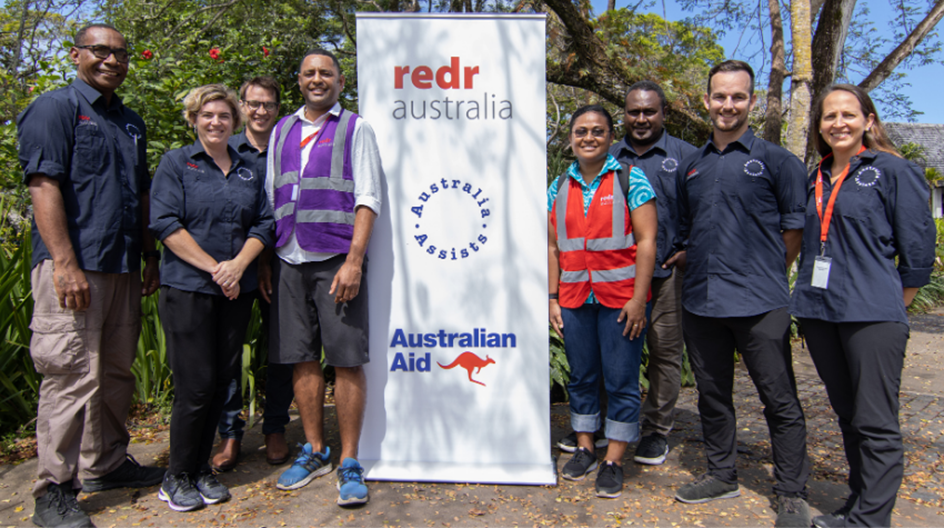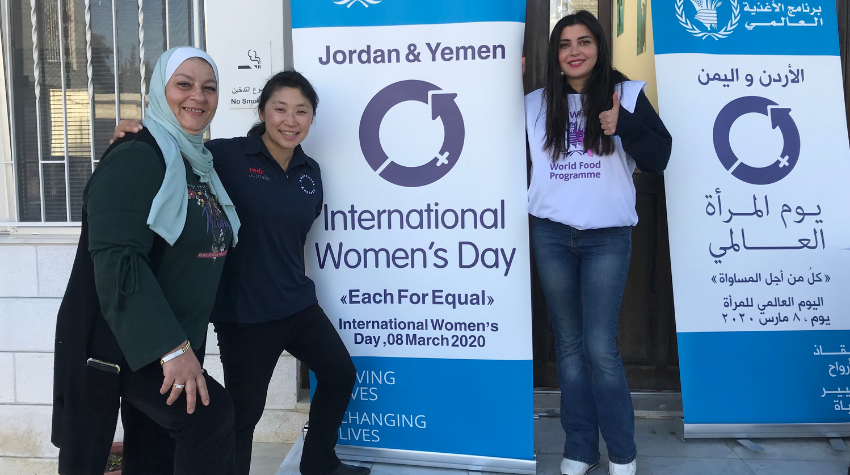This year’s IWD theme, ‘Women in leadership: Achieving an equal future in a COVID-19 world,’ celebrates the efforts of women and girls who are working towards a more equal future as we all continue to respond and recover from the COVID-19 pandemic.
While many of the best examples of leadership during the pandemic have come from women, only seven per cent of countries have women leaders. According to a UN Security Council report from December, the results of a survey of 30 countries with COVID-19 task forces and committees showed that, on average, only 24 per cent of members were women. In conflict-affected countries, the representation of women on COVID-19 task forces was even lower, at 18 per cent.
We know that humanitarian crises impact women and girls disproportionately and the myriad of effects of the pandemic are no exception. It’s estimated that the ripple effects of COVID-19 will triple demand for humanitarian aid over the next decade, increasing the risk that hard-won progress on gender equality will be lost in the scramble to meet basic needs. Therefore, the efforts of our deployees and partners toward realising SDG5 – Achieving gender equality and empowering all women and girls – is more crucial than ever.
RedR Australia’s Gender Equality Strategy and Action Plan [PDF] outlines our approach to gender equality and commits to:
- Enhancing women’s voices in leadership and decision-making;
- Ending violence against women and girls; and
- Building organisational capacity in gender equality.
We deploy gender and protection specialists around the world to prioritise the needs of women and girls during emergencies. We are also committed to gender mainstreaming across all of our deployments.
Despite the challenges of the past year we remain on track to deliver on our gender targets for 2021. Part of our commitment is to ensure we have a 50/50 gender balance in our deployments across the life of our programs. Forty-four per cent of our deployees over the past year have been women – which means that we are within sight of achieving this goal.
The diversity of our deployees and their collective commitment to social inclusion meant that they lost no time in adapting and applying our Action Plan to the new COVID-19 reality as we pivoted to work alongside our partners in new ways.
Yunei, a Gender Advisor with the WFP in Jordan, supported training programs, developed resilient networks and embedded gender awareness into programs to prevent sexual abuse, exploitation and harassment – a critical achievement during this time of rising gender-based violence. Other female RedR Australia deployees have exemplified leadership in the wider strategic response to the pandemic. Deployees coordinating Ebola response in Burundi and South Sudan successfully adapted their strategy to coordinate COVID-19 preparedness and response when it became a bigger public health threat in both countries.
The pandemic shut down traditional supply chains and transport networks, keeping foreign specialists at home. Our local partners and experts already in-country stepped up to exemplify crisis leadership. Ginny, a Vanuatu Government Communications and Events Specialist, disseminated Covid-19 awareness and prevention messages via traditional media and social media in Bislama (local language).
None of this would have been possible without the amazing efforts of the RedR Australia team who led our international COVID response from a disrupted home base in Melbourne, and from the outset prioritized women and girls, people with disability and the elderly in our endeavours at home and abroad.

RedR Australia’s Pacific Regional Manager, Heidi Winder (pictured second from left), at the Essentials of Humanitarian Practice course in Fiji in September 2020.
Heidi Winder, our Pacific Regional Manager persevered through multiple crises over the past year. In the midst of the ‘pivot to COVID’, the widespread impact of Tropical Cyclone Harold suddenly heaped crisis upon crisis. Under Heidi’s leadership, the RedR Pacific Office in Fiji successfully engaged local expertise to facilitate ongoing aid delivery to cyclone-affected areas, and worked with our partners to respond effectively to the twin crises’ impact on services across the region.
Heidi and the Pacific team also delivered the first RedR Australia Essentials of Humanitarian Practice course in Fiji, tailored specifically for the Pacific context. By strengthening the capacity of Pacific Islander humanitarian and disaster management experts, the delivery of this course will allow us to rapidly on-board and deployee local expertise when responding to future regional events.
Even as our pivot to respond to COVID-19 disruptions played out, the RedR Australia team remained dedicated to monitoring and learning from the impact of the pandemic on our operations. The decision to commission an Action Review Report [PDF] on our immediate pandemic response was made to ensure that our future operations maintain the effectiveness and quality we are known for.
As CEO I am incredibly proud of the RedR Australia team. I have seen our deployees and partners working tirelessly through the past year to protect and accelerate gender equality and inclusion. Our people, and their host counterparts, embody the aspirations of this year’s IWD statement and deserve our heartfelt gratitude.
_______________
Kirsten Sayers
Chief Executive Officer


